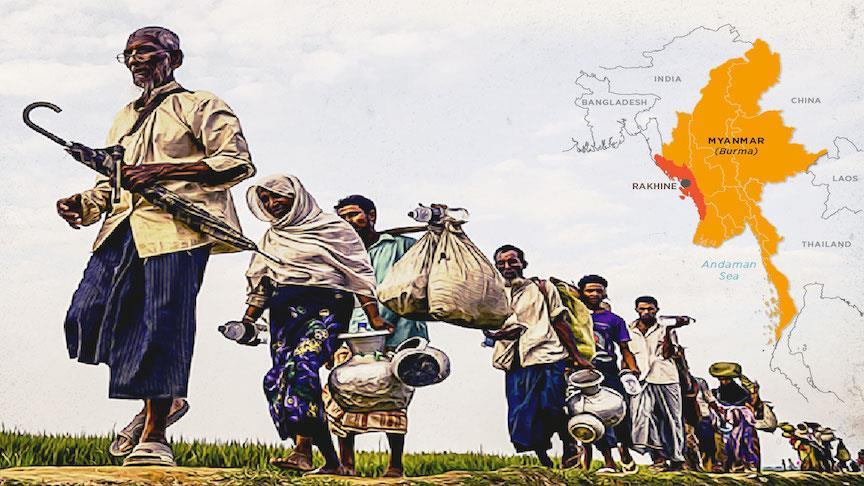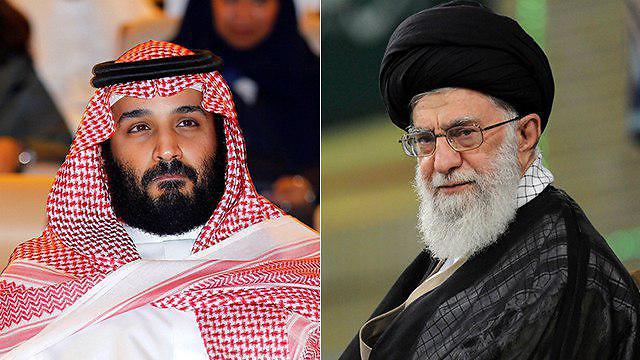When US President Donald Trump announced his policy to shift the American embassy from Tel Aviv to Jerusalem, the divided Muslim world awoke from its deep slumber and issued its faint disproval to the decision. Since 1969, the so-called Muslim Ummah has failed to extend meaningful support to the hapless Palestinians for acquiring their inalienable right to a sovereign state in the tumultuous Middle East. Besides the protracted Palestinian issue, the divided Muslim world is also plagued by myriad political, economic, security and religious issues.
Worryingly, the Muslims countries are at loggerheads with one another on account of geopolitical, economic and security reasons. Such divergence of interests has impeded the required unity of the Muslims to safeguard their diminishing interests in the world. This has provided a tailor-made opportunity to the West to further drive a wedge amongst the Muslims. This is designed to divide and weaken the Muslims so that they do not pose a formidable threat to the Western political, economic and cultural dominance of the world.
After a week of the Trump’s announcement, Turkey immediately called an extraordinary session of the 57-member Organization of Islamic Cooperation (OIC) in Istanbul to dispatch a befitting response to the US. The ineffective OIC has reacted to declare East Jerusalem as the capital of Palestine, rejected the US stance as dangerous and called on the world community to follow in its footsteps.
But, the Saudi decision to send a minister to attend the OIC special session has manifested that some Muslim countries are on the US-Israeli bandwagon and tacitly approve the US decision. Such conflict of interests has been the major stumbling block hindering the Muslim countries from resolving their deep-seated political and economic issues. As history indicates, the indecisive OIC will once again fail to translate its hollow promises about an independent Palestine into tangible measures, thus letting the Palestinians further reel from the brutal oppression of Israel in the region.
It is nostalgic to note that the Muslims experienced a golden age from the 8th century to the 13th century. During the same period, Muslim rulers had not only established one of the largest empires in the world, they had also excelled in the fields of social and natural sciences. Baghdad became the Centre of learning where scholars from around the world gathered to produce more knowledge. However, when the Mongols invaded Baghdad in 1258AD, the golden age of the Muslims came to an abrupt end, resulting in the supremacy of the Europeans.
Though the Ottoman Empire ruled over vast swathes of European and Middle Eastern lands, it could not sustain itself due to entrenched bad governance, internal political cleavages and lack of naval power. Big European powers such as Britain, France, Prussia, Russia and Austria overtly helped minor Christian nations in gaining their independence from the tottering Turkish Empire. After its humiliating defeat in the Crimean War (1854-56), Turkey became the sick man of Europe and was defeated in WWI.
In the subcontinent, some Turkish and Afghan rulers had established their rules from the 11th century to the mid-19th century. These rulers were so immersed in enjoying a luxurious life that they disregarded the promotion of quality education, effective governance and the establishment of strong land and naval power. Their intellectual backwardness, bankrupt economic position and military feebleness invited the British to dethrone the Moghuls in 1857, thus establishing the rule of the British Crown over the subcontinent.

Presently, the overall conditions of the Muslim world are not satisfactory. In Myanmar, the Rohingya Muslims have endured periodic crackdowns since the Operation King Dragon of 1978. The ongoing military crackdowns of the Myanmar army have resulted in the killing of over 1,000 Rohingya Muslims and the fleeing of over half a million to Bangladesh. These ill-fated Rohingya’s are facing gang rapes, tortures and beheadings. The OIC has counted on mere condemnations and has dismally failed to take any concert measure to help the stateless Rohingya acquire their fundamental human rights.
The pathetic condition of Muslims in Indian Occupied Kashmir (IOK) is no different from that of the Rohingya Muslims. India has colonized IOK since 1947 while ignoring the UNSC’s resolutions of 1948 and 1949 about the Kashmiris right to a plebiscite. Over 700,000 Indian forces have killed some 100,000 Kashmiris since 1989. According to some estimates, there are about 6,700 unmarked graves in IOK and about 10,000 Kashmiris have gone missing in the past 20 years. Under the Armed Forces Special Power Act (AFSPA), the Indian forces are authorized to open fire, arrest without warrant, search without permission and even torture to death. The HRW has revealed that rape is usually used in IOK to punish and humiliate communities. Despite preventing India from committing atrocities in IOK, some Muslim countries are betrothed in forging robust economic and security ties with the Modi government.
The simmering Syrian and Yemeni civil wars have made the divergences between the Muslim countries patently clear. Despite finding an agreed solution to these two lingering conflicts, some Saudi-led Sunni Arab monarchies have been heavily engrossed in sponsoring and arming rebels and Islamist militants so as to dethrone the Iranian-backed Assad regime. About 465,000 Syrians have been killed, over a million injured and nearly 12 million displaced in the seven year long war.
In Yemen, some 10,000 people have been killed due to the fighting between the Saudi-led coalition and the Houthi rebels. Roughly 2,000 people have died owing to the rapidly spreading cholera epidemic since April this year; the highly contagious waterborne disease has adversely impacted about one million people in the country. Despite knowing that Sana imports about 90 percent of its wheat to feed its population, Saudi Arabia has lately imposed an embargo on the country, closing all of Yemen’s land, sea and air ports. This has, therefore, brought about serious issues of hunger and malnutrition. Unfortunately, the OIC and the GCC have failed to bring the divided Muslim leaders together so that they could find a lasting solution to the Syrian and Yemeni wars.
On the economic front, though the Muslim world constitutes 23 percent of the world’s population and 21.7 percent of the world’s land mass, its total GDP makes up just only $ 7 trillion, which is only 8 percent of the global GDP. It is worrying to note that the non-oil GDP of the Muslim world constitutes only 4 percent of the world’s GDP. The Muslim world does not own any major multinational corporations of the world, nor do they adequately spend on research and development.
Despite the fact that education is the most effective weapon to transform a weak country into a potent economic and military power, most of the Muslim countries have disregarded this sector. The educational backwardness of the Muslim world can be gauged from the fact that only three Muslims have received Nobel Prize in Science in the history of this prestigious award. In most educational institutions, false religious dogmas are used to prevent students and teachers from adopting critical and innovative means of learning and thinking.

The Muslims have divided Islam into a slew of sects and each sectarian group claims its authenticity. The ideological conflict between Shiite Iran and Sunni Saudi Arabia has continued to create mayhem in the Middle East and South Asia. Due to these religious differences and imperialistic designs of the US, militant and terrorist groups i.e. Daesh, Al-Qaeda etc. are involved in wreaking havoc in some Muslims countries. The Muslim world lacks unity and convergence of interests so that it could stamp out the fanatic forces and put an end to the enduring Shia-Sunni schism.
The Muslim leaders need to diagnose these deep-rooted problems and plan accordingly to resolve them on war footings. A reformed and empowered OIC will immensely help safeguard the collective economic and political interests of the Muslims. Any delay to unite the divided Muslim countries will further embolden the West to divide and weaken the Muslims in this anarchic world.





